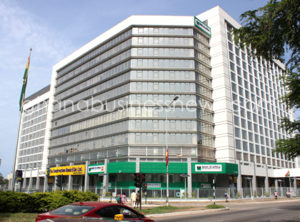Businesses to face more hardships for the rest of the year – Economists
 Some economists are warning that Ghana’s economic outlook, following revisions made to the fiscal targets for 2022 will make things difficult for the business community.
Some economists are warning that Ghana’s economic outlook, following revisions made to the fiscal targets for 2022 will make things difficult for the business community.
The government in the 2022 mid-year budget review, reduced the country’s Gross Domestic Product (GDP) – growth in income earned from production for the year from 5.8 per cent to 3.7 per cent.
It also announced that there would be a shortfall in revenue, with spending going up.
The government aims at mobilising GH¢100.5 billion in revenues and grants, with a total expenditure of GH¢137.5 billion.
Meanwhile, inflation (the rate of increase in the prices of goods and services), which was set to end the year at eight per cent, is now expected to increase to 28.5 per cent.
Speaking with the Ghana News Agency, the economists explained that the implication of the revised fiscal targets was that there would be slow growth in the economy.
They noted that with the government’s flagship economic programmes – the Planting for Food and Jobs (PFJ), and One District-One Factory – not yielding the expected gains amidst uncertainty in microeconomic stability, and high cost of capital, businesses would continue to face hardships.
Dr Patrick Asuming, a Development Economist with the University of Ghana Business School (UGBS), said that: “Things are going to be significantly worse than was projected at the reading of the original budget in November 2021.”
“The economy is now projected not to grow fast. The growth rate will be lower, and inflation will be more than three times what we had initially projected. The exchange rate depreciation will also be higher. So, overall, businesses are looking at a less prosperous economy and a more unstable economy,” he said.
Dr Asuming asked the government to prioritise the country’s productive sectors, particularly, agriculture and streamline its flagship programmes by ensuring sustainable financing schemes for such projects.
The programmes should also be integrated into other sectors of the economy, like manufacturing, and products be enhanced and made export ready to bring some respite to businesses.
Mr Courage Boti, an Economist and Financial Analyst with GCB Capital, noted that the inflationary pressures were likely to reduce by end of the year, but businesses would suffer.
He said: “Inflationary pressures are likely to slow down by the end of the year, but financial prudence is more critical, so, the government should be prudent by further cutting down expenditure to help the country meet its fiscal targets and provide some respite to businesses.”
Figures provided in the 2022 budget review showed that growth stood at 3.3 per cent for the first quarter of 2022 compared to the 3.6 per cent recorded in the same period in 2021.
The moderation in growth in the first quarter of 2022 as showed by the Bank of Ghana’s updated Composite Index of Economic Activity (CIEA), was 15.8 per cent in March 2022 compared to 26.3 per cent in the corresponding periods of 2021.
Meanwhile, the average cost of inputs received by domestic producers for the production of their goods and services (Producer Price Inflation) for the month of June increased to 38 per cent from 33.3 per cent in May.
Mr Ken Ofori-Atta, the Finance Minister, admitted that the Ghanaian economy was going through challenging times, which had effects on both businesses and individuals.
He said that: “We know things are tough now. But we have a plan and the will to drive it,” and called on the citizens to eschew pessimism, which took invaluable energy away from the forward march to transformation.
He was confident that the Enhanced Domestic Programme with the International Monetary Fund (IMF), expected to take effect from next year would bring the stability the economy needed and confidence to go to the international capital market.
Source: GNA
